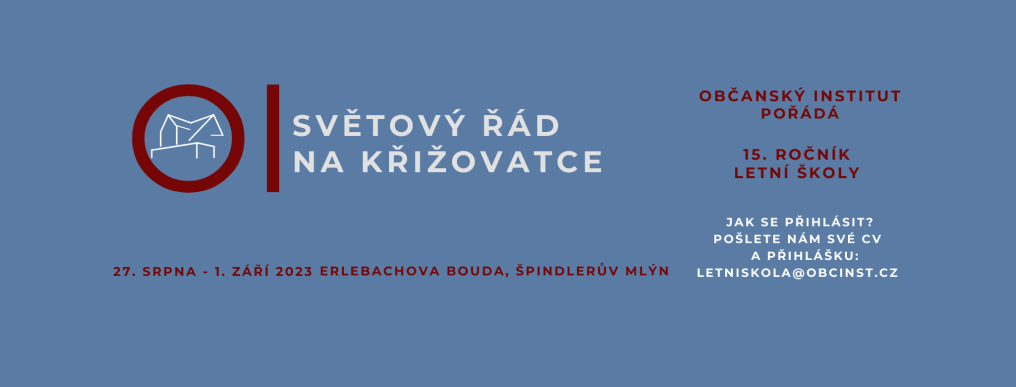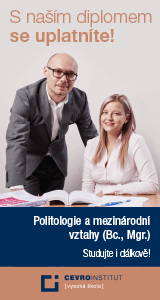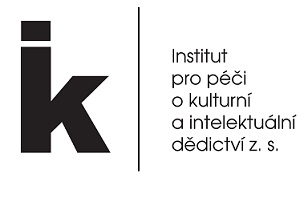ATHEISM – ITS IMPACT ON FAMILY, MORALITY AND HUMAN LIFE
Michaela Freiová
The bound between family and religion is generally known: it is family, through which the axioms of religion are passed on, and it is religion, which protects family by traditional rules and traditional concepts of marriage, motherhood, fatherhood, internalized authority…
We all do know, too, that contemporary attacks at family realized by promotion of homosexuality, individual rights, challenging sexual differences etc., are - primarily – attacks on religion.
Attacks in question are aiming, however, at the organized religion only: spiritualities, freely chosen at the “religious market”, are tolerated. What is seen as an enemy today, is the rational element in religion: church structure, fundamental points of teaching, moral rules. That´s why the bound between religion as an institution and family as an institution is challenged.
We Europeans do know very well, how far is this question relevant today, when EU tries to oust God and religion from its documents and philosophy. EU tries to establish its concepts on the Jacobinic philosophy, rejecting God, religion, tradition, moral, and family as well. …
But I would like to propose a different point of view today: I propose to look at the question of the influence of religion on family and public life from the oposite side: what does mean ATHEISM for public life and private life, for the development of human person and for position of family?
European liberals support the attacks on religion by their traditional thesis on religion as private matter: they use to stress, that we live in a secular state, and that public exposition of religion is opposing it.
It means, however, that liberals – after our 50 years of praxis with totalitarism - make society and state identical. They confuse society for state, claiming universal responsibility of government for human life. It is , however, the totalitary concept of state, formulated in thirties by Nazis: Nazis claimed, the state is entitled and obliged to give the very meaning of life to individual citizens (1). The liberals, in last years, go along the analogous way, claiming, that – if the secular character of state is not to be endangered - it is necessary to impose the single common philosophy for public discussion, for public space: religion – according to them – must be excluded from this philosophy, because religion is a source of diversity and of a tension generated by it.
They claim, too, that influence of family must be balanced by series of obligatory educations: sexual education, multicultural education etc. Educations of this sort are to impose basic concepts and values to children and young people, preventing family to form and inform their children.
Liberals see religion as a danger for civil liberty and for independence of an individual. They remind danger of religious wars or – at least – conflicts between religious communities. However, in 20.century, it was the atheist ideologies who were the vehicles of wars: nacism spread its war through the whole Europe, communism spread it through the whole world.
We, conservatives, must in the same moment assess, how – under an influence of atheism as imposed obligatory philosophy – the relationship of our society to human person will change, and to her free development in family.
When the Pope, in 1998, met with families in Rio, he said to them, that contemporary
atheism doesn´t mean any more a direct attack on existence of God, but an attack on human person as a God´s creature. What he meant with it, it was contemporary challenging of human nature, created in two basic modes – male and female: he meant an attempt to replace man as a God´s creature by free creating one´s own personality by an independent individual, which – as feminists do claim – is not to be bound to bipolarity of sexes, but independently designed from single elements. The bipolarity of sexes is to be suppressed – through a complete adjustment of woman to the male form of existence. The key for it is a complete suppression of the generativity of female body, because this generativity means the assignment of woman to a different destiny than is the destiny of male.
In the moment, when natural characteristics of human person are replaced by political concepts, in the moment, when a woman, due to political reasons – and let us not being mislead, there are no other reasons, than political ones, which the Czechoslovak experience proves - is to be reshoed into a less perfect male, when the natural bipolarity is supressed – in this very moment we lose the sense of complementarity, mutual need, common destiny. The principle of complementarity is replaced by principle of confrontation and conflict. And it is this very moment, when the institution of marriage is challenged, i.e. the institution, which – in whole network of tensions is a signum pacis, sign of peace between different people, when the institution of family is challenged, which is common dwelling of different beings.
What is more acute is that human person and human destiny turnes to be an instrument for political goals. A sign of this tendency is, e.g., the report of European Parliament from March 2002, called “Women and Fundamentalism“. Issues connected with position of women in society are – quite openly – used as an attack against organized religion: Christianity and Judaism are made identical with Islam, Islam is made identical with Taliban – and these steps are made with such an arrogant negligence, that they don´t try to cover the basic goal of the report: legal steps against Christian churches and against the Bible.
In the Preamble of the Document we can read:
E. whereas the aims and interests of fundamentalists include those of setting themselves up as guardians and defenders of the purities and quintessential features of a particular belief, whether religious, philosophical, ideological, economic, political, scientific or technical, and once they have taken on this role they use their power to establish their own legitimacy or legitimise their actions, to subjugate women or different human beings, to shield themselves against cultural influences, to deify a race or people, to preserve the prerogatives of certain elites or to maintain privileges, giving rise to fanaticism of all kinds,
H. whereas the similarity of fundamentalism with totalitarian political regimes has been demonstrated, given that traditionalists consider themselves to be in possession of the truth and to monopolise it,
K. whereas, when religious communities assume powers which belong to the public sector, they operate de facto in opposition to the democratic rule of law in the EU,
N. recognising the wisdom of those who advocate secularisation or separation between public affairs belonging to the political sphere and religious convictions and beliefs which must be free and respected and which fall within the private domain of individuals; deploring the interference of the Churches and religious communities in the public and political life of the state, in particular when such interference is designed to restrict human rights and fundamental freedoms, for instance in the sexual or reproductive sphere, or incite and encourage discrimination,
P. expressing serious reservations with regard to regressive ideologies which are nostalgic for times past and claim to possess answers for women’s role in the future based on retrograde positions from the past;
Z. whereas, although having children must be a purely personal matter, women’s reproductive functions are often controlled by the family, national legislation and/or religious leaders; whereas furthermore most of those responsible for controlling women’s reproductivity, at any level, are men…
That´s why the Declaration rejects activities of the religious organizations insisting on the Old Testament tradition, according to which women can be judges and prophets, but they cannot be priests. The Declaration tries to ostracize countries protecting unborn life (Poland).
Summa summarum, the Declaration in question, speaking in terms of women´s rights, claims a further de-christianization of Europe. Women are to be an instrument for radical rejection of historical traditions and of biblical concept of human nature. – E.g. Art. 31 sounds as follows:
31. Calls on all believers of whatecer creed to promote equal rights for women, including the right to control their own bodies and the right to decide when to have families of their own, their lifestyles and their personal relationships… etc.
And Art.33 says:
33. Expresses support for the difficult situation of lesbians who suffer from fundamentalism, and calls on religious leaders, including the Romanian Patriarch and the Pope. To change their attitudes towards these women.
Also the “homo-agenda” is aiming to the same goal: attack on the Bible and Christianity. Here, I must bring to your memory the actual case of Sweden, where Reverend Ake Green is to go for a month into prison because of his public criticism of homosexual behaviour.
Two other cases can be added, showing the challenge of European “soft norms” to our historical experience with communism: the case of the “Van Lancker report” and the case of proposed monitoring of European prolifists.
In May 2002, the Van Lancker report was voted by EP, asking candidate countries of EU, including my country, to impose obligatory sexual education challenging protection of life and family authority. The report asks, too, to establish a special database controling measures and their effects in member states. Free access to abortion is required too, of course.
Not only the contents of educations and measures in question are the problem: the main problem is, that – in this way – the democratic procedure itself is challenged, by which our society approves or rejects proposed norms. How can European countries protect their legislative sovereignity in the field of family laws, when the basic concepts and their interpretation is imposed by Brussels?
From our letter to Brussels, signed by more pro-family and pro-life organizations, I will quote:
Abortions were introduced in our country by communist regime in 1958. … As late as the fall of communism brought a decline in numbers of abortions: the reason was not only an easier access to contraception, but the public debate on abortions as well, showing the ethical and health problems connected with this procedure. …
The sexual education, problematizing traditional relations between male and female, was introduced by communists as well. …
After the Velvet revolution we see, the prominents of imposed sexual education, promotion of porno-industry etc. Are mostly exponents of the communist regime… …
We ask you to reconsider:
1. How is the text of the Document to harmonize with the freedom of family tuition in spirit of values, which parents consider as substantial (2) and with freedom of education generally?
2. How is the text of the Document to harmonize with freedom of charities (e.g. consulting to women in unexpected pregnancy), which are not able and ready to consult and act in “nonjudgmental way”?
3. Is it moraly suitable in time when so many European familes are in social need (especially in post-communist countries) to waste money for “research on sexual and reproductive indicators and definitions”?
The last case I wish to quote is the case of proposed monitoring of prolifist groups by a special executive group: the author of the measure in question is the Commissioner for Development and Humanitarian Aid Poul Nielson from Danmark. We had to explain to the commissioner Nielson, that his plan is just the same, like the campaign of communist regime against the anti-abortion petition in 1986: at that time, we also were “monitored” and physically hunted by communist policemen in the streets of Prague.
We wrote to Mr.Nielson as follows:
Abortions in the Czech Republic (former Czechoslovakia, respectively) were legalized by the communist regime in 1957 without any preceding public debate. When in 1986 the “right to abortion” was to be extended to include minors without parental approval, the pro-life opponents formed an ad hoc group to counter the government plans with a petition. Organizing under conditions of a totalitarian regime a petition, signed by more than 8.000 men and women, was extremely difficult due to the systematic monitoring by the communist police, always alert to control thousands of people suspicious of independent civic activities.
Although we have dilligently avoided using telephones and postal service and organized the whole protest through personal contacts, the police was able to find out about our plans via a sneak and attempted to assault the activists during delivering the signatures. An older lady, mother of ten children, was physically attacked and for long hours brutally interrogated at a police station (all the signatures were confiscated, of course). Also other activists were intimidated and scrutinized.
We are extremely disturbed by the fact, that European Union might take a similar path. In this letter we do not focus on the attempts of EU agencies to finance the pro-abortion policies in the underdeveloped countries or the pro-abortion propaganda at schools, another fateful decisions that we deplore. In this letter we resolutely insist on the claim that establishing an organ to monitor civil activities is a fundamental breach of the freedom of thought and expression, and specifically our civil right to religious freedom as the respect to human life is a most fundamental and general religious principle, guaranteeing any other human right.
We would like to remind you, Mr. Commisioner, that defenders of human life are monitored and criminalized in Castro´s Cuba, communist China etc. The European civilization was always defined by her respect to human being as an individual, his life and liberties.
We express our hope that this historical reality will be fully respected by all institutions and organs of the European Union.
Mr.Nielson assured us, that our informations are wrong: we shall not be monitored by special group, but only by one of his officials…
The last danger of atheism today is the trend to politization of human life and human morality. What does it mean, “traditional morality”? It is a morality of an individual, concerned to its INDIVIDUAL deeds and failures, it is and attempt to see human life in an OBJECTIVE view, reflecting God´s view of an individual human life.
On the other hand, politicized morality is morality of GROUPS. It speaks in terms of classes, ethnicities, identities, minorities, it challenges general historical traditions.
Today, when even committed Catholics have a problem with praxis of confession, people go about confessing sins of their communities: sins of Catholic church, sins of Christian tradition, sins of American history, sins of West European history, etc. Here, I think, we see a total loss of sense of objectivity: multicultural ideology convinces us, it´s us ho can decide, and interpret, what is good and what is wrong. It´s us who can appoint politically correct virtues – tolerance, equality – and vices – rasism, xenophoby etc. And a membership itself of this or that group is morally more relevant than our individual sins.
In the frame of this artificial construction, family loses its meaning. Political virtues can be taught better by public authority: how can you impose equality in family, where there are children and adults, seniors and babies? If the “tolerance”means relativization of good and wrong, how can it be taught in family?
The function of family is to teach OBJECTIVE values, values anchored on the absolute horizon.
If I am to summarize my thesis, I would say, that it is family, who garantees pre-eminence of PRIVATE sphere in teaching values, forming and informing people: If, however, family is to fulfill this task, it must be interconnected with religion. If we admit, that religion expresses itself – too – with human institutions, than family is a language of religion. By this language, society is reminded of its basis, its history, its meaning.
None of these tasks can be pursued by atheism. Atheism has no connection to history and to meaning of human life. That´s why atheism must always stand in contraposition to family and family will always stand in contraposition to atheism.
2004, August
(1) Ernst Forsthoff, Der totale Staat. Hamburg 1934.
(2) The European Convention of Human Rights, Council of Europe, 1950, 1st Protocol (Paris 1952)
(No person shall be denied the right to education. In the exercise of any functions which it assumes in relation to education and to teaching, the State shall respect the right of parents to ensure such education and teaching in conformity with their own religions and philosophical convictions.)








